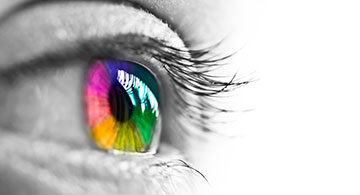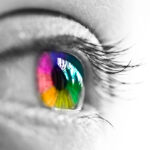Filipinavigation
By Riana Torrejon
torrejonriana@gmail.com
Riana Torrejon is a twelfth-grade student who is a passionate advocate for human rights. In her spare time, she loves to write and sing. She also runs her school’s Student Council, chairs for ECSD’s Student Senate, and is an actress for Emma the Musical. Martin Luther King, Jr. is one of her greatest inspirations.
After birth, most infants open their eyes within the first few minutes and start to look around them. I don’t remember anything from the day of my birth, but I remember a lot of what I’ve seen since then.
Whenever I saw something scary, I’d instinctually run into my family’s arms to seek safety. With them, I felt instant relief. In their faces, I saw myself and I saw love.
When we moved to Canada and I entered the airport, my eyes immediately travelled left and right as I had never seen so many different skin tones from ebony to ivory, and I almost felt lost swimming in what appeared to be an unfamiliar sea of people. However, moments passed, and it then became apparent to me that the variations between the shades of our skin did not erase the universal qualities that humans share such as the need to eat, sleep, and—most prominently—to be with our loved ones. Many sprinted towards one another as they were reunited, while others sobbed as they said goodbye, often clinging to each other for one more second of the other’s embrace.
Eventually, I watched as everyone in the airport blurred in my sight, blending their colours into one beating heart.
As time passed, I began to feel the effects of being an immigrant. Until then, I had only grown up in the Philippines, so I was always surrounded by others that resembled me, and this applied to the celebrities on-screen as well. I had never been seen as a Filipino first or asked about my ethnicity so often before. I was simply another fellow human in the Philippines. It was a strange new reality.
My parents worked long hours to provide for us in Canada, so I spent much of my time watching television. It made my heart sink to see the dearth of Filipinos on the screen in the Western world.
It made me wonder why this was the case as I met numerous Filipinos in Edmonton alone. In fact, many of the Filipino kids I met along with their families had been born in Canada which ultimately left me questioning—why did I not see them on-screen?
Furthermore, it wasn’t that I never saw any Asians on-screen, but when I did, it felt off. Asians in many American shows were hardly the leading characters, and were almost always portrayed as gawky, nerdy, submissive, and/or a caricature to be snickered at. Having grown up in Asia, I knew that this was not always the case, and that the diversity of an entire race was not being done justice to.
However, as the years pass, I have witnessed television shows become more multicultural. Shows like “Fresh Off the Boat” and “Master of None” have been a breath of fresh air as I could finally recognize Asians similar to those I grew up with. These Asians on-screen had been given more depth as they demonstrated their strength, humour, athleticism, passion, worries, desires. Most importantly, they were more than a one-dimensional stereotype.
The industry is starting to see that audiences now seek more diverse casts and diversity in roles that people of colour play, but we need to continue to exhibit this demand by supporting work with diverse casts. Personally, I recommend “Everything Before Us” and “Youth and Consequences” which have recently featured Filipinos and Filipinas in their main cast. We need to stand together as a community of Filipino consumers to communicate to the Western world that we seek visibility on-screen.
There are about a thousand known hate groups in America, and Canada is not immune to this, having more than a hundred white nationalist groups. I believe that one root of hate is fear, and the space we currently have is unequally shared in important platforms like television. We need to be visible to one another and recognize the beating hearts within each other. Visibility on-screen means to be recognized and portrayed as three-dimensional humans who are contributing members to society as well, equal to others, regardless of skin. I dream for the future of television and film to reflect this.
If you’re an actor of colour—and able to—please pursue roles that offer visibility through characters of depth which defy negative racial stereotypes instead of reinforcing them. Let’s continue to make space for ourselves. The ability to pick and choose one’s roles as an actor is a privilege that not many have. However, if you have this privilege, then I encourage you to only take the roles which offer the visibility that people of colour deserve as this gives hope to others in the community and continues to pave our path forward. I urge all involved in the industry, from the screenwriters to the casting agents, to help move our world forward by evolving what is seen on the screen to become more inclusive.



